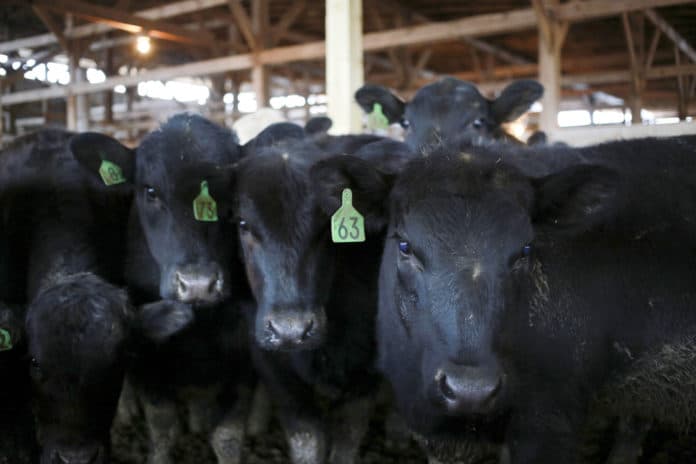OKLAHOMA CITY (AP) — A scandal about government meat inspections in Brazil has shaken the market worldwide and created opportunity for Oklahoma ranchers, agriculture industry watchers said.
But the openings will be small initially, said Jim Robb, economist for the Livestock Marketing Information Center in Denver, Colorado.
“These types of things don’t happen very often,” Robb said. “We don’t import much beef from Brazil, really, but it’s the reverberations from around the world that are going to be interesting to watch.”
“For example, how China responds and how Brazil tends to manage the situation, those are still unknowns. . In terms of the U.S. marketplace, we would not expect the changes to be huge, but it’s too early to know yet,” he said.
Brazil’s meat export shipments collapsed this month as several countries halted deliveries from the South American country in the wake of a meat inspection scandal. That country’s agricultural investigators said health inspectors were bribed to overlook expired meats and chemicals and that other products were added to product to improve appearance and smell, The Journal Record (http://bit.ly/2mQDtdn ) reported.
The result has been dramatic. On average, Brazil exported more than $60 million worth of meat each day in March, according to government officials. That figure fell to $74,000 by Tuesday, just a few days after the probe was revealed. The government suspended exports from 21 companies and officials said only a handful of 4,000 plants were involved.
South Africa was the latest this week to join the list of countries banning Brazilian meat. Others include the European Union, China, Japan and Mexico.
Derrell Peel, an agricultural economist at Oklahoma State University, said the scandal has scared off China as well, which could have implications on trade policy negotiations with the U.S. as that country seeks its meat elsewhere.
China remains the fastest-growing consumer market for beef, reflecting the reopening of its market to Argentina and Brazil, according to the U.S. Department of Agriculture’s most recent livestock and poultry study on world markets. Brazil was the world’s top exporter of veal and beef in 2016 at 1.85 million metric tons, compared with 1.12 million from the United States.
“In the span of five years, China became the world’s second-largest beef importer,” according to the USDA report. “Chinese beef imports are forecast to expand an additional 15 percent in 2017.”
The report was released in October, so predictions about China don’t really hold up now, said Lane Broadbent, president of KIS Futures in Oklahoma City. Investor movement suggests others share that perspective.
“This market is viewing the news favorably,” Broadbent said. “People assume we’re going to get more business out of the Brazil situation unless it’s quickly (alleviated). We’re seeing this as nothing but good news for us because it means more demand for U.S. beef.
“You’ve got to remember, we’re the only game in town when it comes to corn-fed beef, the only country that does it on a large scale. Once another country starts doing business with us and they get the advantage of corn-fed livestock, they’re going to stay around with us for a while,” he said.
According to the state Agriculture Department, cattle and calves are worth about $3.3 billion to Oklahoma each year. The second and third most valuable ag commodities to the state’s economy are swine and poultry at about $1 billion each. Winter wheat is worth about $300 million annually.
___
Information from: The Journal Record, http://www.journalrecord.com






